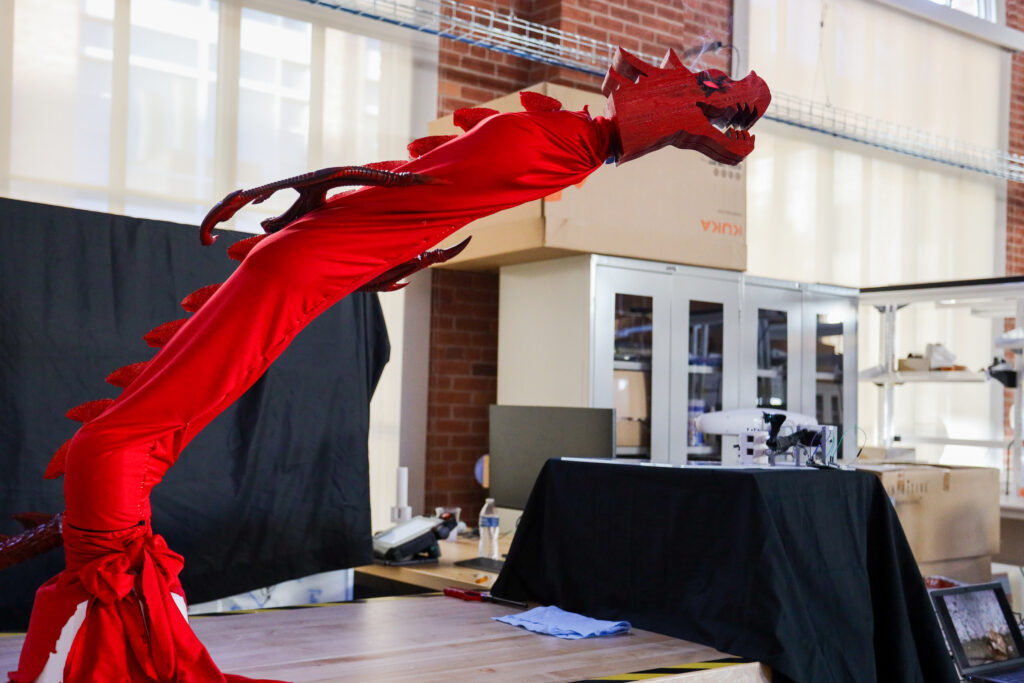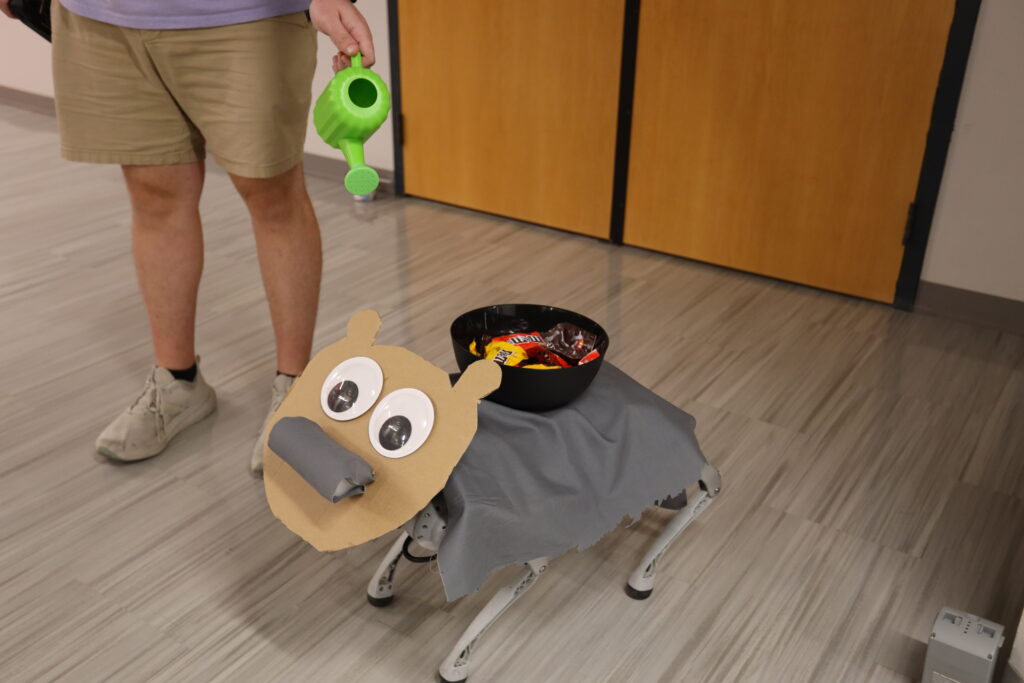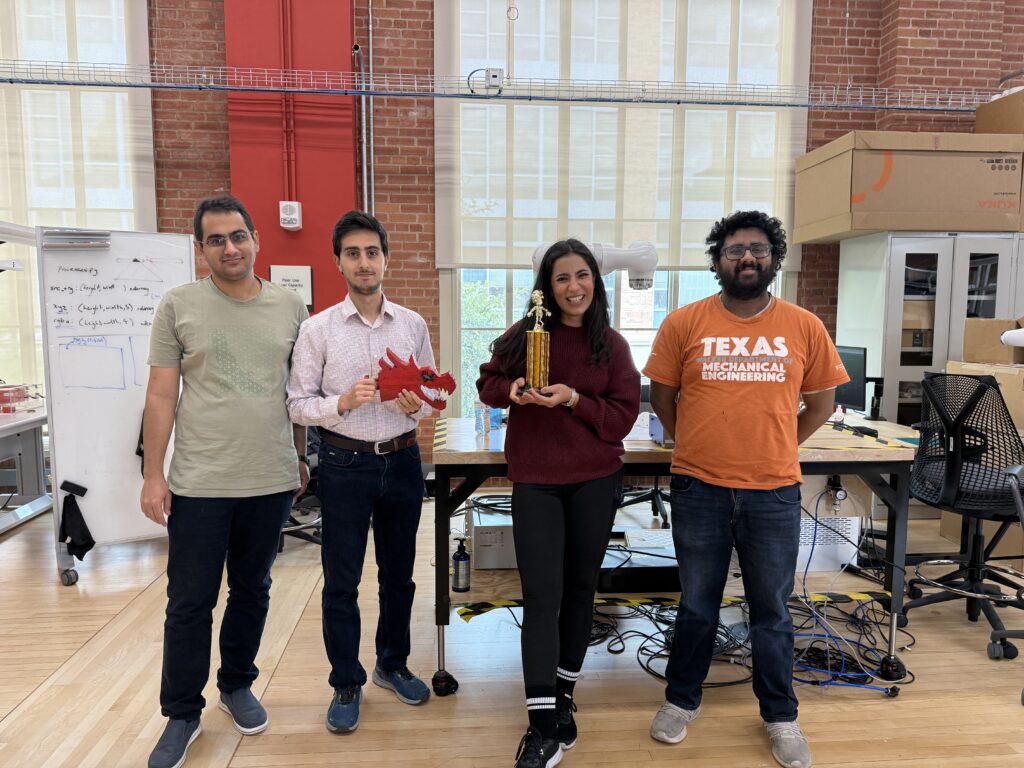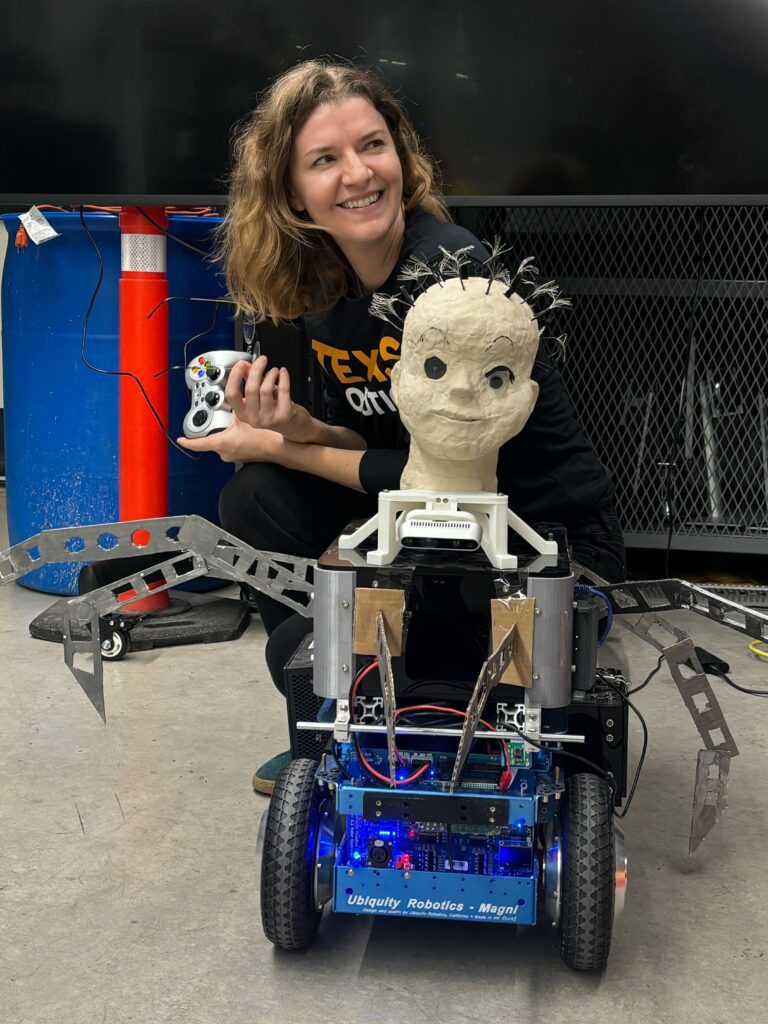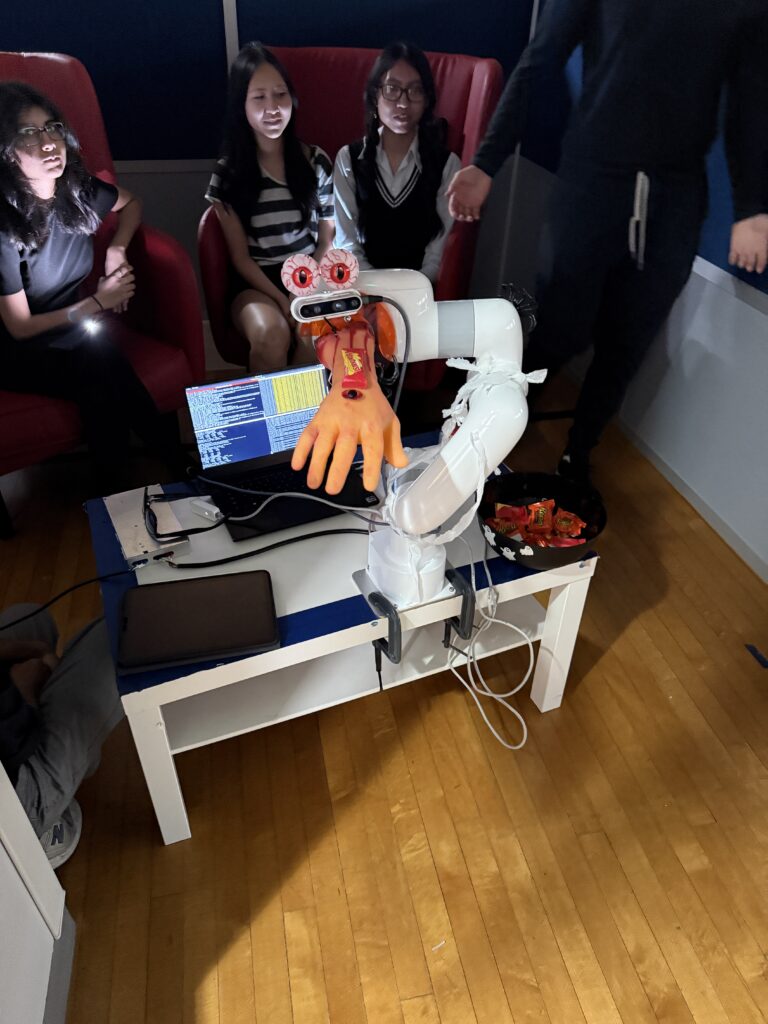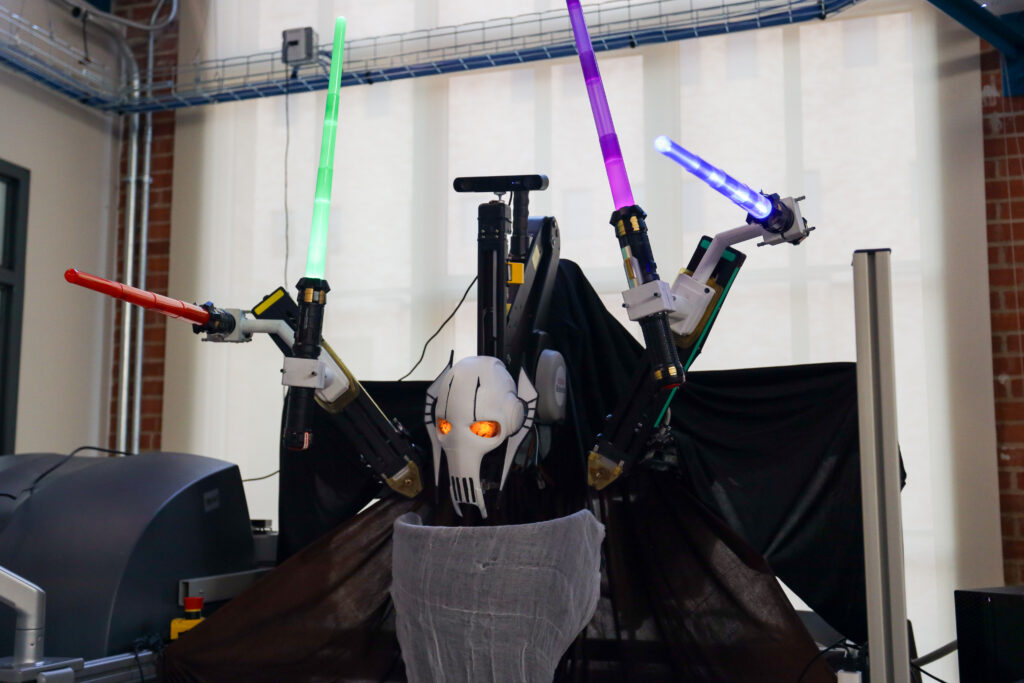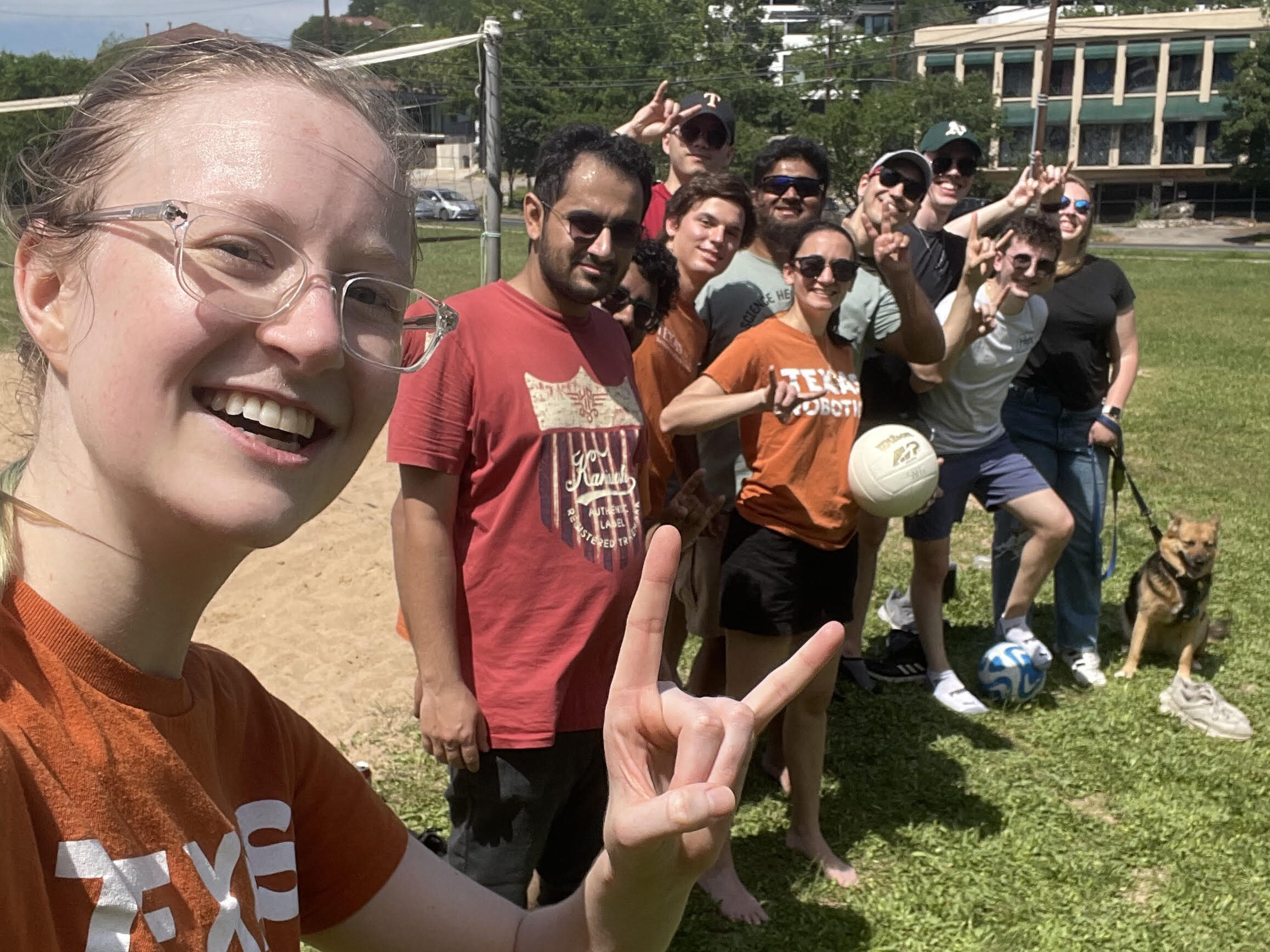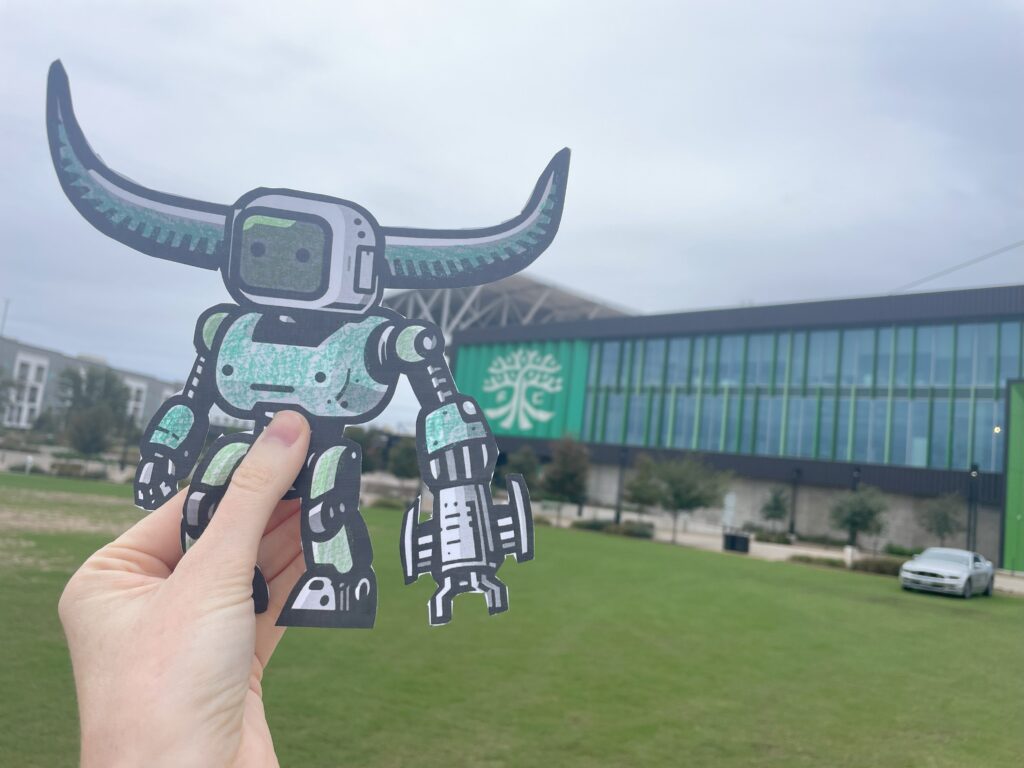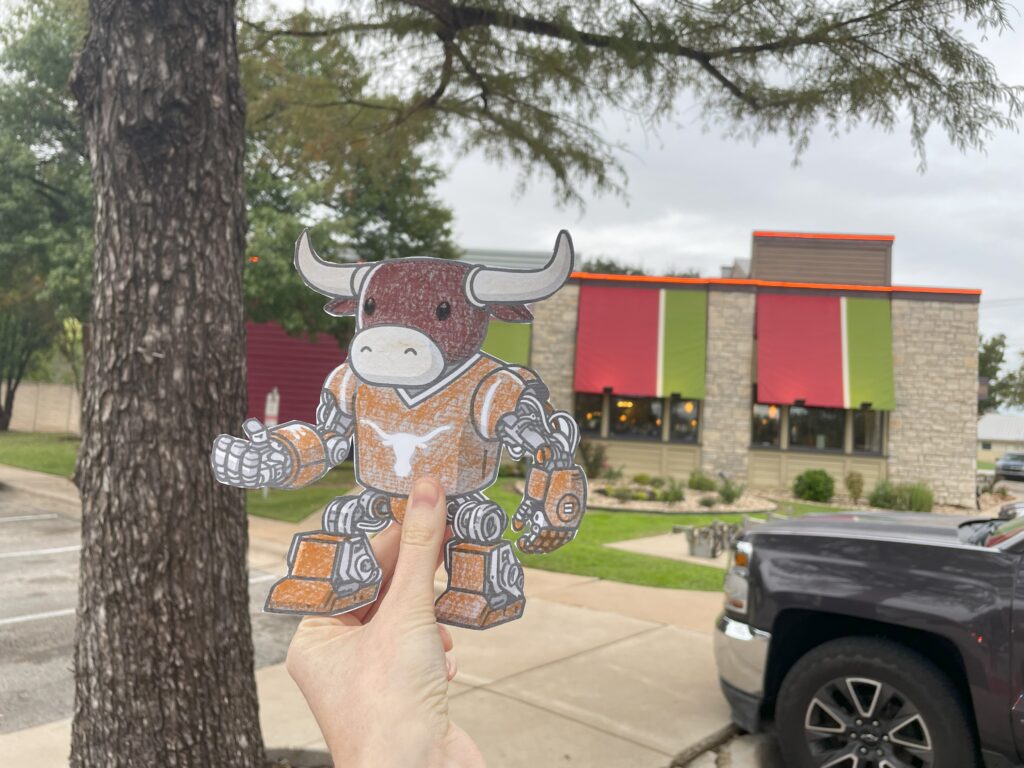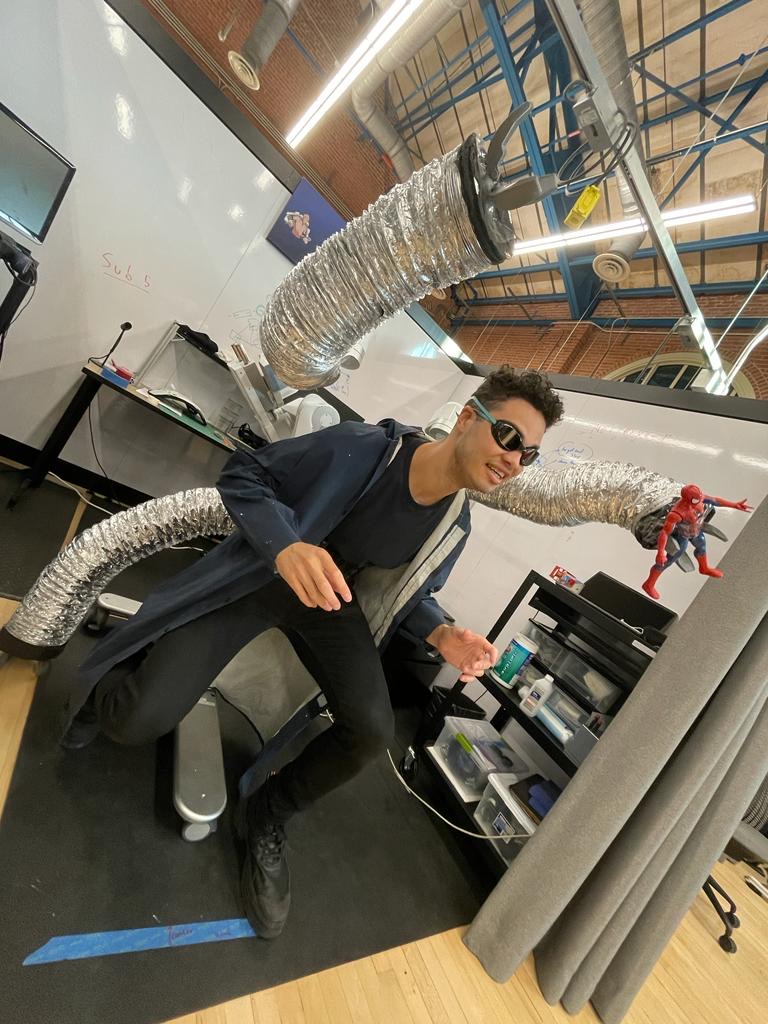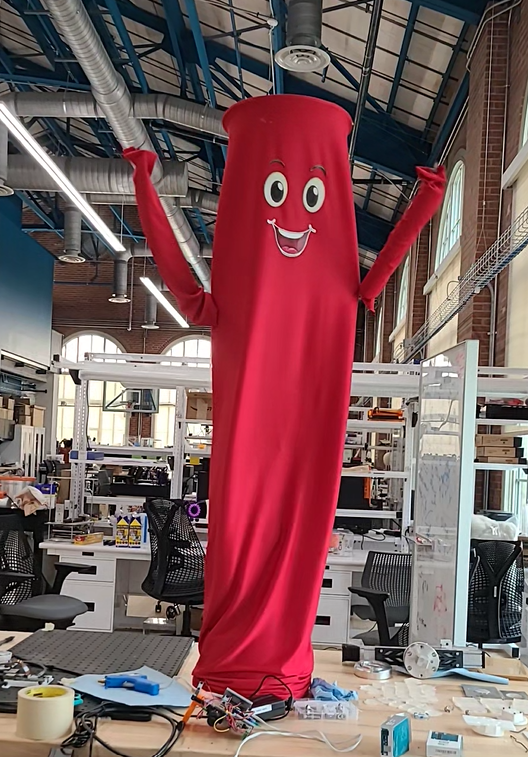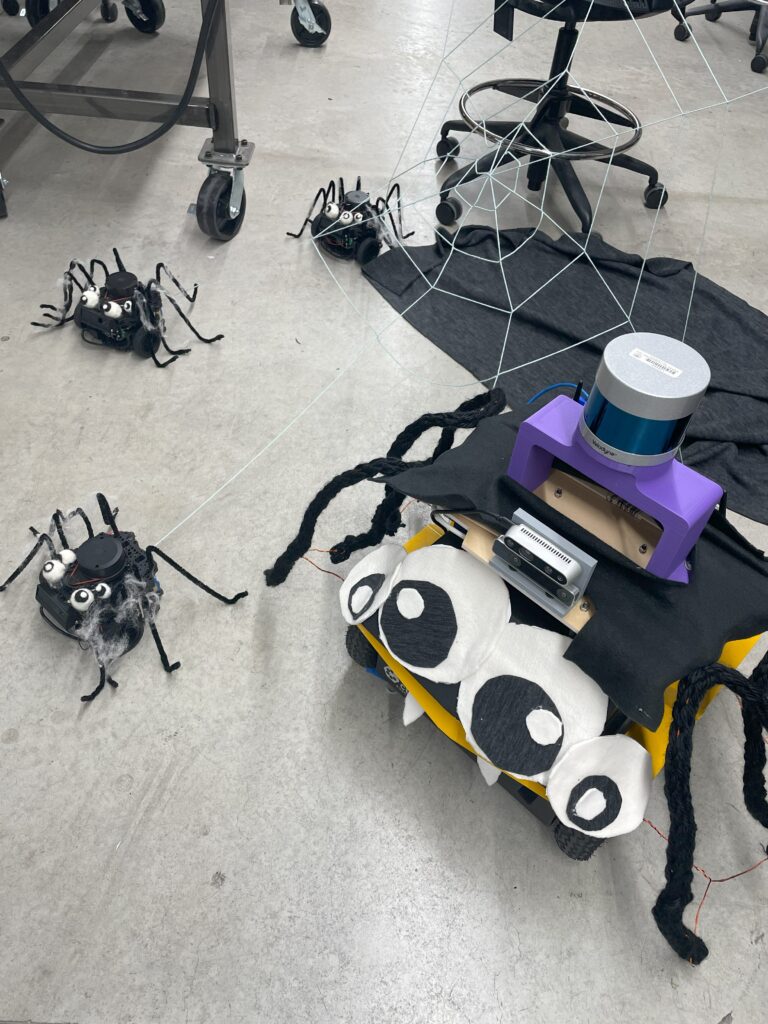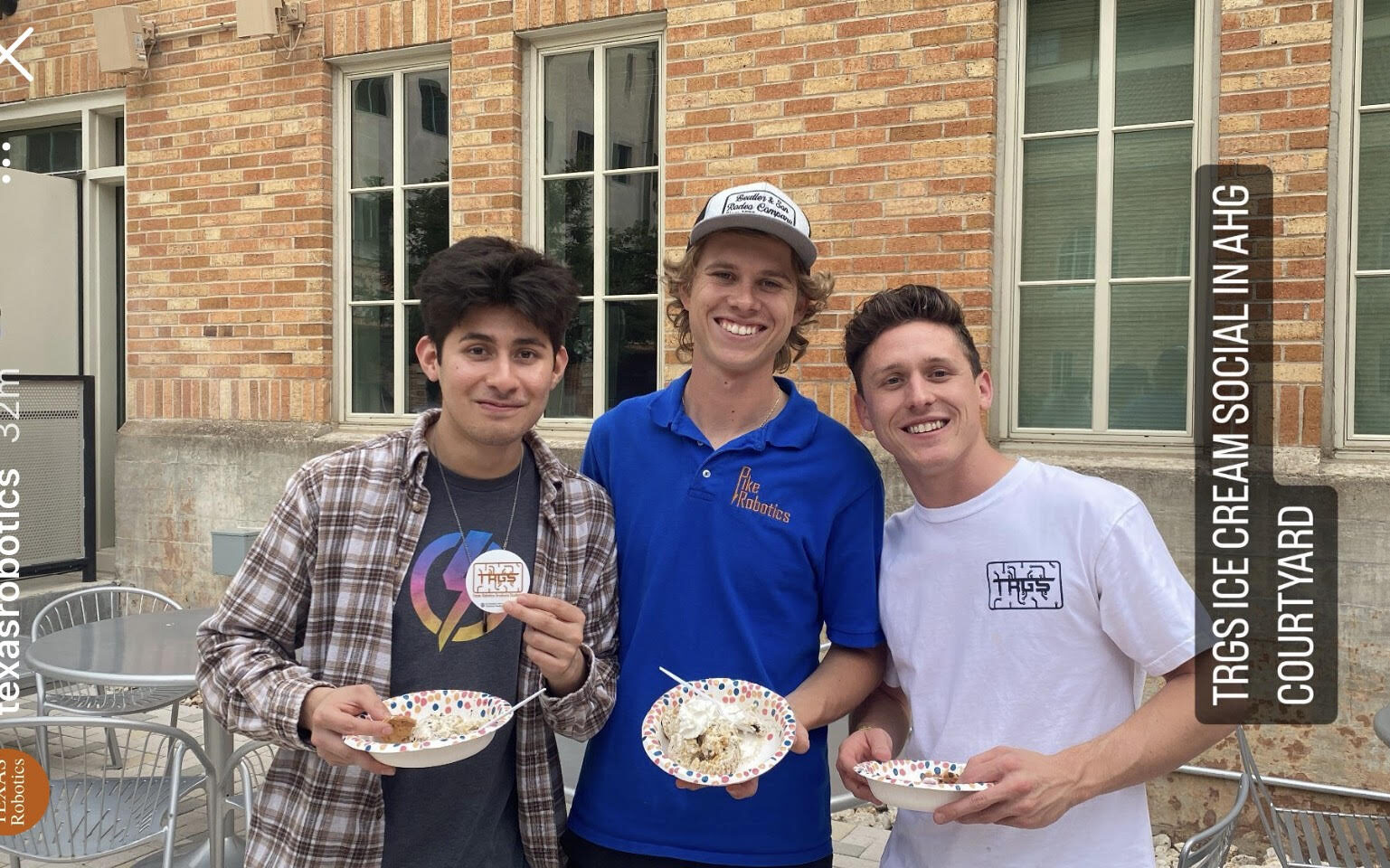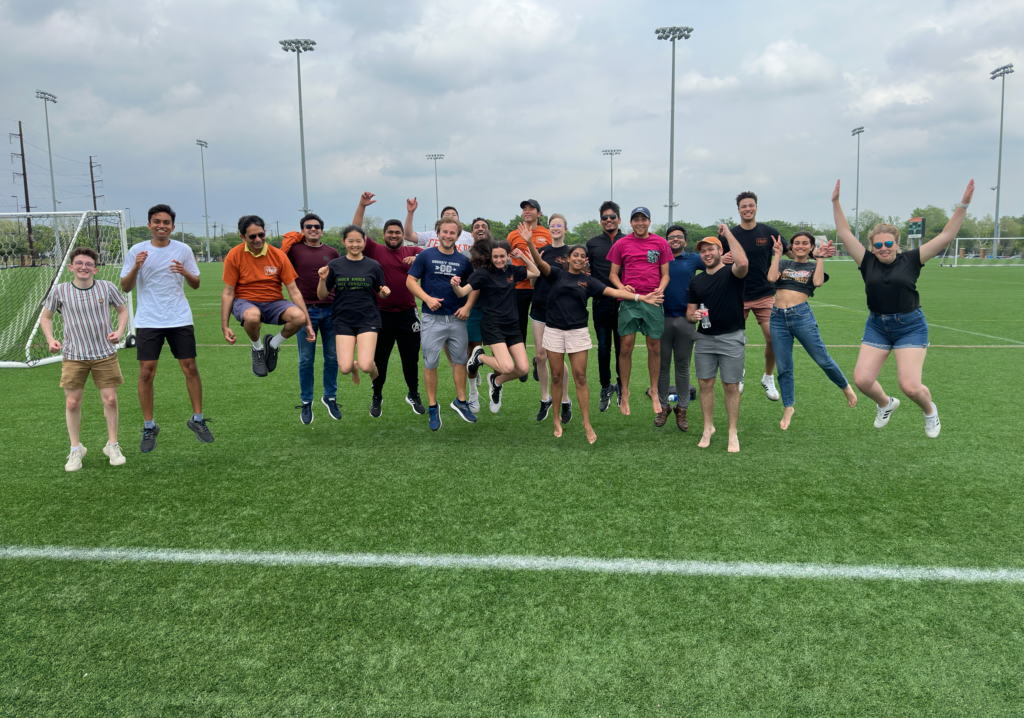Students enjoyed Kismet Cafe while partaking in various field day activities. The Purple team had a clean sweep, winning 1st place in both sword-fighting and the-tennis-court-is-lava.
Esteemed Post Dog Ruby (from ARTS lab) and her new sibling Doodi (also from ARTS lab) managed to make an appearance, to the delight of the grad students.
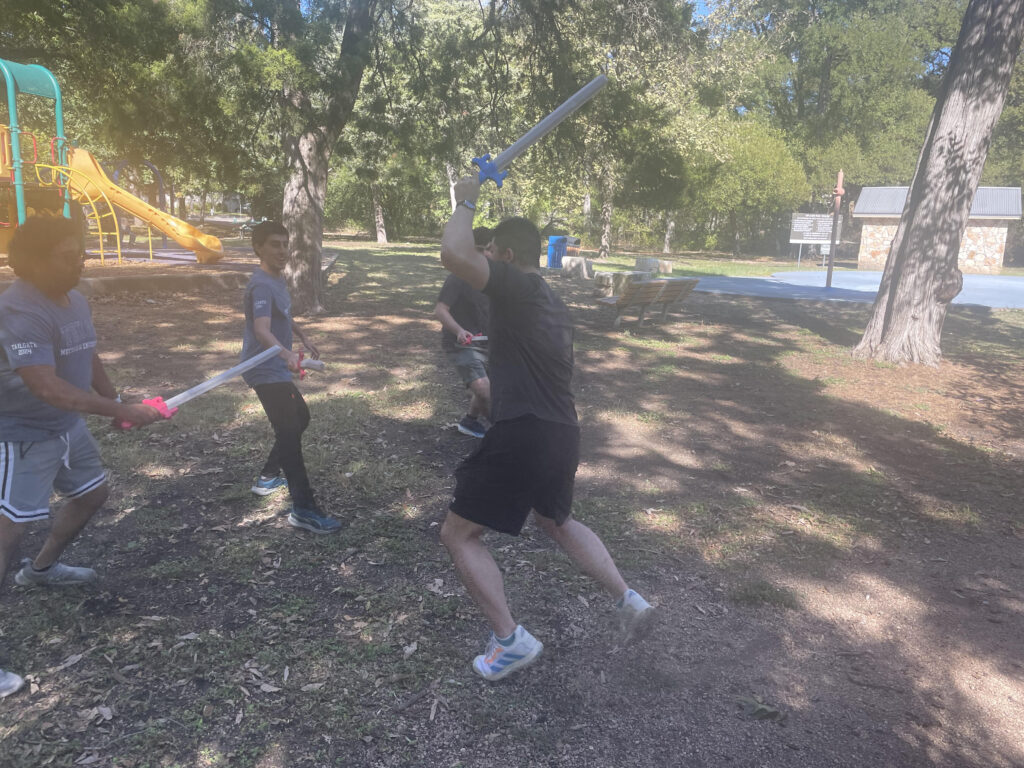
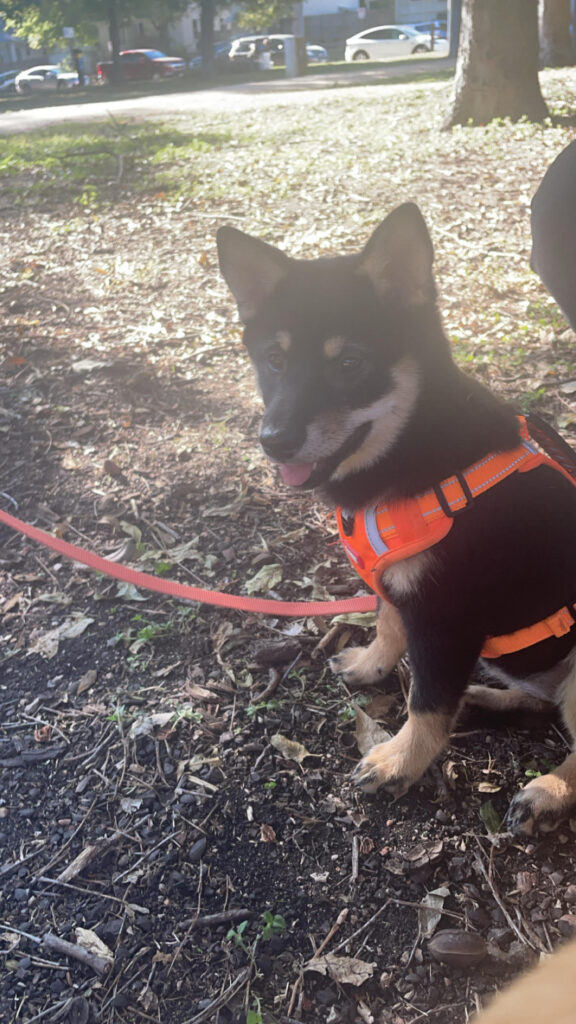
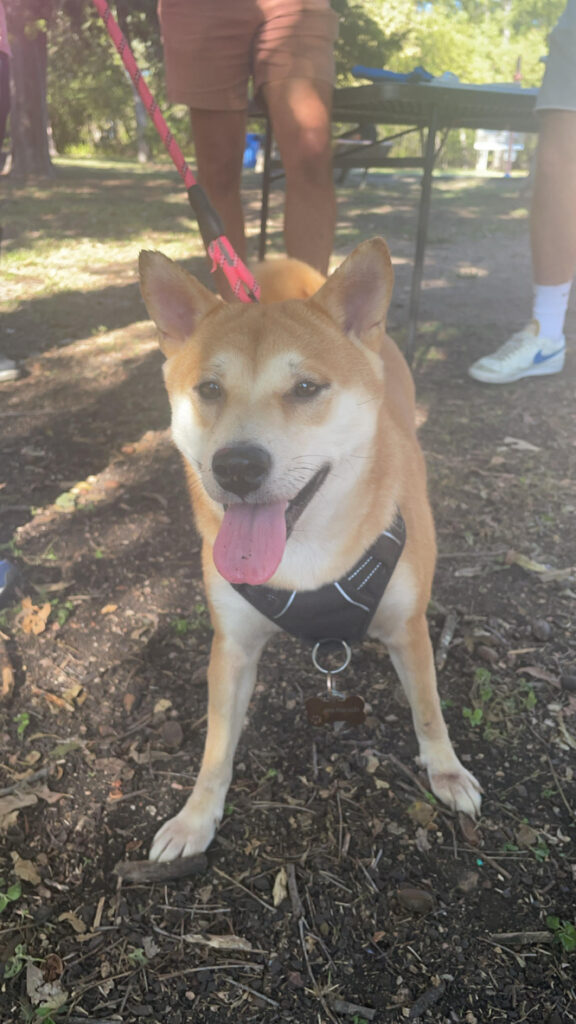
This brings the total scores in the Crystal Cup competition to:
White – 94 points (31 for the picnic)
Purple – 114 points (48 for the picnic)
Blue – 72 points (19 for the picnic)
The teams consist of:
White – HeRo, ReNeu, Robin, RPL, SWARM
Purple – AMRL, ARTS, Center for Autonomy, CLeAR, HCRL, MERGe
Blue – CNBI, LARG, LWR, NRG, SAHM
Teams win points for the Crystal Cup through event attendance and participation, such as winning the field day activities.


